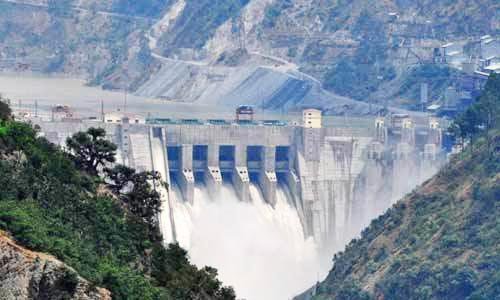Pakistan approaches World Bank, objects Kishanganga Project
The move comes after Indian Prime Minister Narendra Modi inaugurated the 330 MW Kishanganga hydroelectric project in Jammu and Kashmir.

- Country:
- India
- Pakistan
A four-member Pakistani delegation arrived in Washington and raised the issue with world Bank of an alleged violation of Indus Water Treaty by India. The delegation is led by Pak Attorney General Ashtar Ausaf Ali. The move comes after Indian Prime Minister Narendra Modi inaugurated the 330 MW Kishanganga hydroelectric project in Jammu and Kashmir.
The Kishanganga project was started in 2007, located in Bandipore region of North Kashmir. It envisages the diversion of water of Kishan Ganga river to an underground powerhouse through a 23.25 km long tunnel.
On the other hand, Pakistan is building a 969 MW Neelum-Jhelum hydroelectric project downstream.
Raising concerns over the inauguration the Pakistani side claimed that the project would disrupt the water supplies in Pakistan. Islamabad objected to the designs of the project and accused India of violating the accords of Indus Waters Treaty.
As per a Pakistani newspaper report, the Pak officials are refusing to disclose the details of the talks on an issue which can have disastrous consequences for Pakistan, in case if not handed aptly.
A World Bank Spokesperson said: “The meetings are scheduled for today and tomorrow. She added when further asked to comment: “We can update you later as needed.”
The International Court of Arbitration, based in Hague green signalled Indian project in 2013 and upheld India’s right under the bilateral Indus Waters Treaty to divert water from the Kishanganga river to North Kashmir for power generation.
The Pakistani side is likely to raise issues over the height of the dam built on the Kishanganga River, its capacity to hold water, Pakistan’s demand for setting up a court of arbitration to settle the dispute and India’s counter-demand for an international expert.
- READ MORE ON:
- World Bank
- Kishanganga
- Indus Waters Treaty
- Pakistan
- India
ALSO READ
World Bank, ARTF support financing for micro and small enterprises in Afghanistan
New World Bank program to expand electricity network through private sector participation in Ethiopia
World Bank allocates USD 16 million to support women-led businesses in Afghanistan
World Bank loans Ethiopia $1.72 bln for power, water supply expansion
World Bank-Sweden report reveals poverty and distributional impacts of air pollution in Tbilisi










